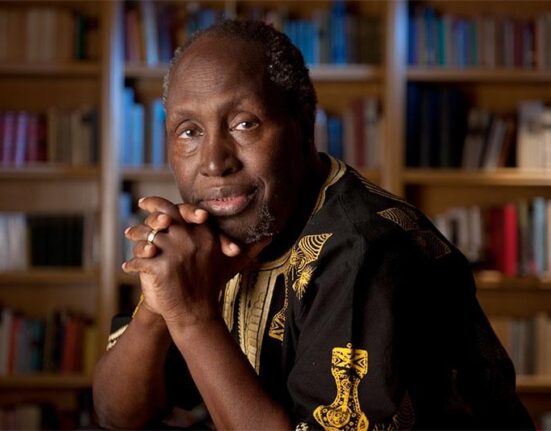Ngugi wa Thiong’o, born James Ngugi on January 5, 1938, was a Kenyan literary icon revered for his profound impact on African literature. His journey from a small village in Kamiriithu, Kenya, to international prominence is a testament to his dedication to storytelling and advocating for African voices. Educated in mission-run schools and later at prestigious universities in Uganda and England, Ngugi’s transformation from James Ngugi to Ngugi wa Thiong’o symbolized his resistance to colonial influences and his embrace of his Kenyan heritage.
The literary world was forever changed when Ngugi burst onto the scene with his play “The Black Hermit” in 1962, marking the beginning of a remarkable career that would shape the landscape of African literature. His novels such as “Weep Not, Child” (1964) and “The River Between” (1965) delved deep into themes of colonialism, the Mau Mau Uprising, and the quest for independence in Kenya. Through his works, Ngugi highlighted the struggles and triumphs of his people, shedding light on the complexities of postcolonial Africa.
Ngugi’s dedication to writing in his native Kikuyu language underscored his belief in the power of African languages in literature, challenging the dominance of colonial languages in literary circles.
His prolific output, spanning novels, plays, and essays, resonated with audiences worldwide, with translations of his works reaching diverse corners of the globe. Ngugi’s unwavering commitment to decolonization and the empowerment of African narratives made him a beacon of hope for aspiring writers and intellectuals across the continent.
Despite his literary acclaim, Ngugi’s path was fraught with political turmoil. His imprisonment in Kenya for criticizing the government led to his exile in England and later the United States, where he continued to champion African self-determination and challenge colonial legacies. As a professor of literature, Ngugi inspired countless students with his wisdom and passion for social justice.
Ngugi’s notable works such as “A Grain of Wheat” (1967) and “Decolonizing the Mind: The Politics of Language in African Literature” (1986) are timeless classics that continue to shape conversations on identity, language, and cultural heritage.
The impact of Ngugi’s writing extended beyond the literary realm. His short story “The Upright Revolution: Or Why Humans Walk Upright” (2019) achieved a remarkable feat by being translated into over 100 languages, solidifying its place as a milestone in African literary history. This achievement not only showcased Ngugi’s storytelling prowess but also highlighted the universal themes that resonate with readers of diverse backgrounds.
As news of Ngugi wa Thiong’o’s passing reverberates across the globe, the literary community mourns the loss of a true visionary. His legacy as a trailblazer in African literature will endure, inspiring generations to come to embrace their cultural heritage and amplify marginalized voices. Through his words and actions, Ngugi wa Thiong’o leaves behind a rich tapestry of narratives that continue to ignite conversations on colonialism, identity, and the enduring spirit of Africa.
Ngugi’s unwavering commitment to decolonization and the empowerment of African narratives made him a beacon of hope for aspiring writers and intellectuals across the continent.









Leave feedback about this